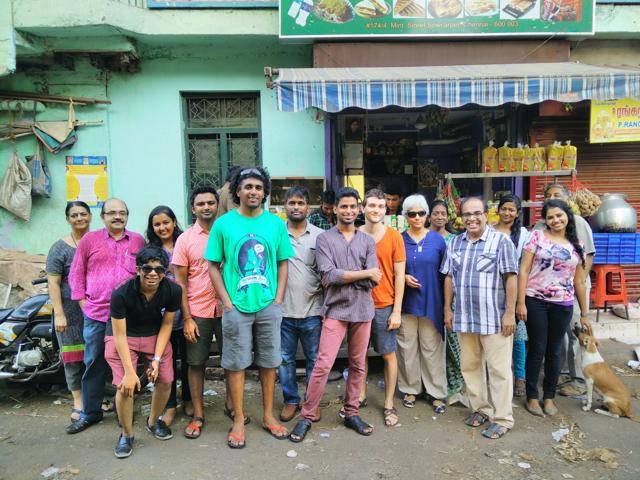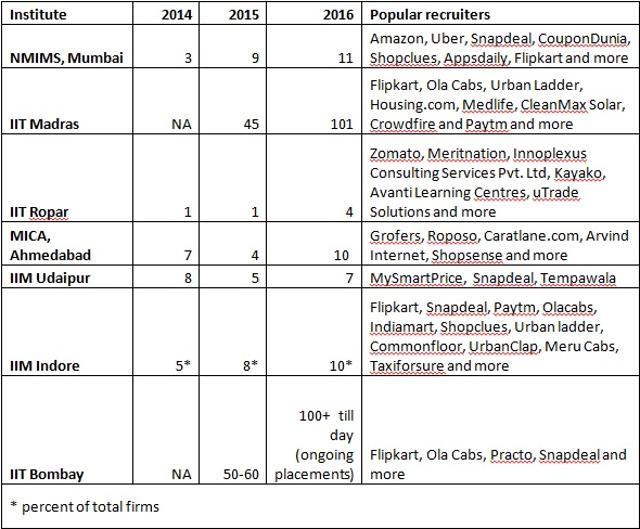Should you opt for deferred placements, or go it alone?
Students should research start-up offers carefully, and make sure they can afford the risk.
Leadership roles, high salaries, accelerated career growth, flexible hours: sounds like the perfect job? Such attributes entice students to take on start-up offers at campus placements — but is it always a wise idea

Last month, Flipkart infamously deferred the placements of IIT and IIM graduates from June to December 2016, promising a joining bonus to compensate. “The signing bonus is significantly lower than the salary they would be paid for the six months,” says V Babu, placement advisor, IIT Madras.
Flipkart did not respond to HT’s emails on the issue.
Despite the debate over the sustainability of start-up jobs, campuses continue to host start-ups in placement drives — while the numbers have increased across most campuses, some have seen a marginal fall. Before considering a start-up offer, experts say students should research the company thoroughly.
“Start-ups have to be a part of the recruitment process, but students need to be more aware; they must keep in mind recent developments in the start-up space,” says Siddharth Deshmukh, associate dean and in-charge of industry interfacing, MICA (formerly known as Mudra Institute of Communications, Ahmedabad).
Read: Deserted by Flipkart, IIM-A grads get support from Paytm, ShopClues
For instance, IIT-Madras student Abhishek Sharma decided to forego campus placements this year, to start a company of his own. With two classmates, Sharma founded Blaffer, a firm that conducts food-themed walking tours.

“In retrospect, it was a good decision to skip campus placements this year. In a way, we were safe from the stress our friends went through when the placement sessions were postponed due to the Chennai floods in December 2015, when several companies backed out as well,” says Sharma, a student in department of metallurgical and materials engineering. “We also escaped the chaos caused by companies withdrawing and deferring placements this year.”
Of the seven students Flipkart hired from IIT-Madras, five took on the offer. “They are all willing to wait until December — none of them have said they will look for alternatives,” says Babu. “They are concerned with whether they will definitely be hired eventually, but prefer the quicker growth prospects that a start-up provides.”
Students must evaluate whether working at a start-up makes economic sense for them, as new companies may be financially unstable.
For instance, 24-year-old Akhil Singh, an engineer based in Pune, was disappointed with his first start-up experience. Hired as the only software engineer at a six-month-old company, Singh became the company’s chief technology officer (CTO). Eager to be part of a disruptive company, he accepted the offer with a much lower salary than he would have otherwise, and an equity option. “When I started work, I realised that having no one else with a tech background around was a handicap. I had to learn concepts myself, implement them myself, fail or succeed myself. Like most other engineering graduates, by theory-based course had not prepared me for the real world.”
Read: Not just IIMs: Flipkart keeps more B-schools waiting
Soon, he found himself working more than 16 hours a day, picking up coding, management and other skills, with no mentor. In three months, he quit. “I realise now that positions such as CTO require a maturity that a fresher does not have,” says Singh, who now works a mid-level position at an online internship platform. “I have learned so much from the CTOs and CEO at my new company. It’s been life-changing.”
“My advice to freshers is, don’t lose sight of the money altogether. Start-ups are great, but you’ve probably taken a loan. B-schools aren’t cheap. Can the start-up pay you enough to keep things going? If not, work at an MNC for a few years; learn, do. Then go on a start-up adventure,” he adds.
First impressions
Deferred placements happen routinely at IITs and IIMs, say experts. “Last year, an IT company took on students in batches. Core companies that conduct training programmes abroad also take a few students at a time, as their training programmes can be scheduled, thus deferring placements for some,” an IIT official says, on conditions of anonymity.
However, Deshmukh adds that this could affect the overall impression of the company. “Start-ups need to understand that brands are built by influences, and their potential employees are some of the strongest influencers. Every company should revisit hiring strategies to decide the experience they want to provide to their potential employees.”
CAMPUS RECRUITMENTS ON THE RISE

“Layoffs and deferred placements definitely affect the psyche of any individual and continued occurrences would create a negative impression,” says Atul Shukla, placement manager, IIT-Bombay.
Institutes are likely to be extra cautious the next placement season, to avoid such situations. Janat Shah, director, IIM Udaipur says, “We will be more thorough with the due diligence of early stage firms.”
(With inputs from Shaili Shah)











